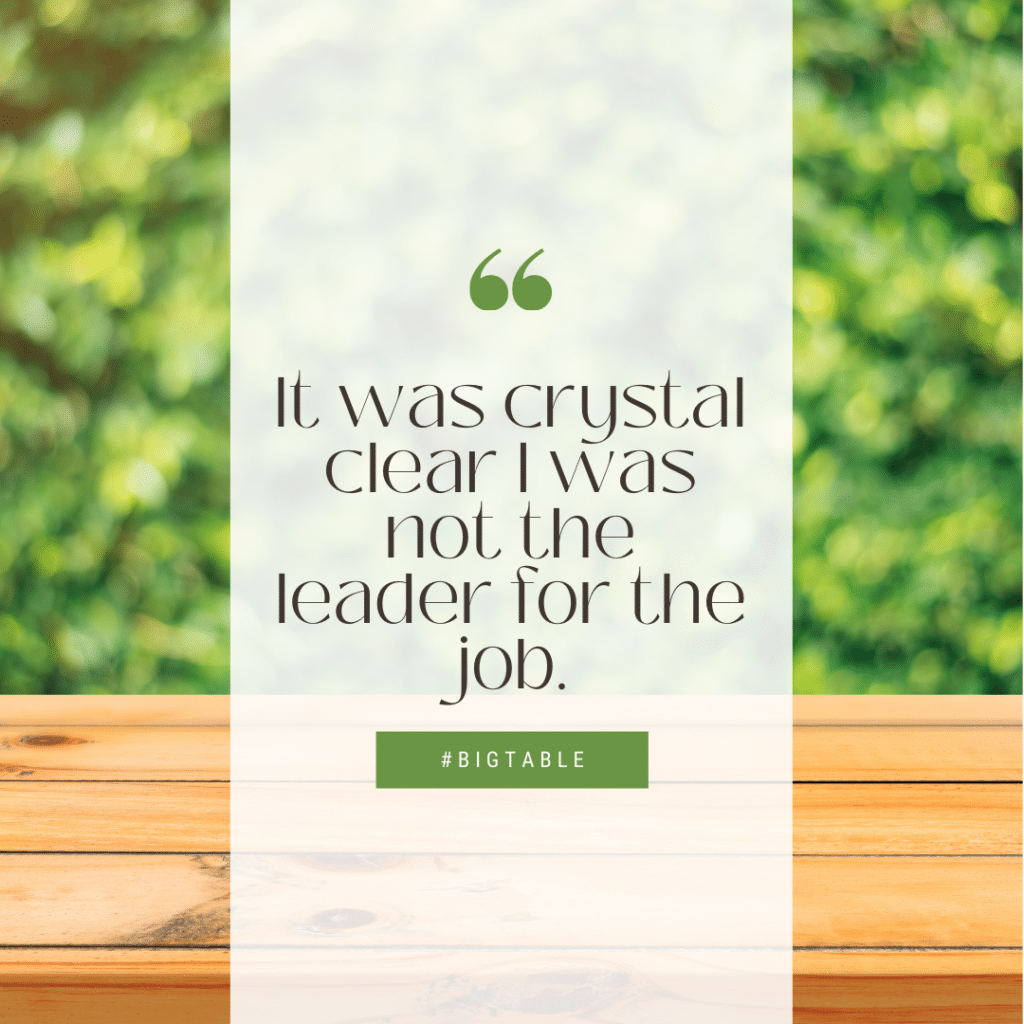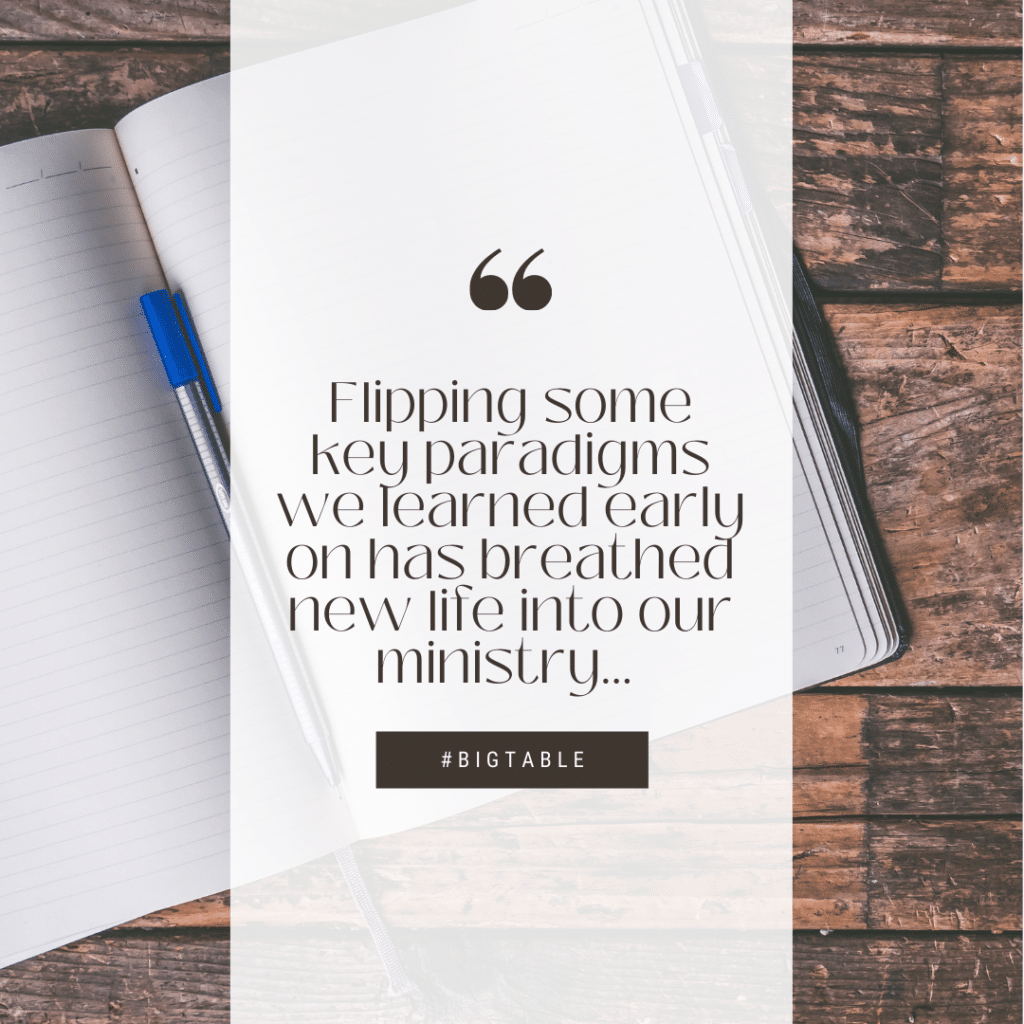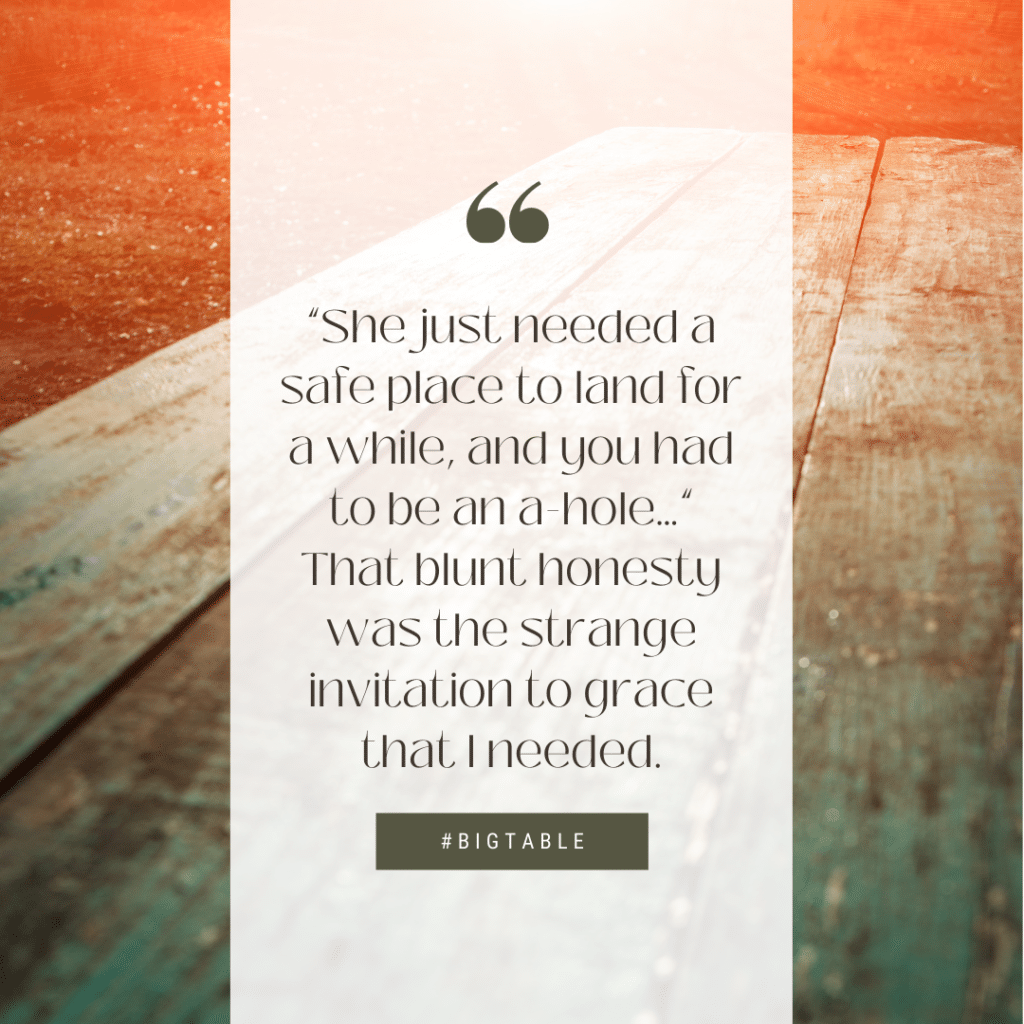We’re excited to be hosting a seminar at the Post Evangelical Collective gathering in Denver next week, Oct. 11-12! More on that below. Because it got us thinking about our relationship with the evangelical church in the U.S. and what post-evangelical means to us anyway.
A few years ago we went through a webinar with Lisa Sharon Harper at Freedom Road on decolonizing our reading of Scripture. She said something to the effect of, it isn’t throwing out everything we’ve learned before, but more a sifting for what’s good, what’s rotten and what’s still needed. That seems like a great framework for understanding what post-evangelical means as well!
What are we bringing with us? What are we leaving behind? And what are we still hoping for? Here’s the first in a short series of joint musings.
How would you describe what it means to be post-evangelical? Do you like that word?
Bill:
A lot of people I know have ditched the label ‘evangelical’ because they experience it so negatively… As enmeshed with the Republican party, led by domineering males, and obsessed with money-making. As unaware of the kind of Whiteness that avoids our checkered history and is committed to self-protection. Yet the name ‘post-evangelical’ also recognizes there’s a real connection to that religious tradition and even a certain valuing of it.
As for me, I feel pretty flexible in what people call me and in what I call myself. Honestly, of late I’ve taken to answering strangers’ questions about what I do with, “I curate safe spaces for people to go on their own spiritual journey.” And if they press I tell them that my journey centers around following Jesus. Only if forced to will I admit I’m a pastor.
Brenna:
See, that’s one place where being a woman and a pastor works to my advantage, I think! Because it’s such an unlikely combination still (still!), me saying that I’m a pastor tends to create this cognitive dissonance. People pause and go, yeah, but what kind of pastor? The super-conservative assumptions aren’t quite as reflexive…
What I appreciate about the term post-evangelical is that it’s honest. Tt does describe my spiritual heritage, how I’ve been profoundly shaped by a particular faith tradition, and also the real sense of movement now from that starting point. The downside, of course, is that it doesn’t describe what we’re moving toward – what’s the telos? Like ‘exvangelical,’ it seems more a negation than an affirmation.
I haven’t come up with any better, pithy ways to sum that up, though. Good thing language is always evolving!
Why exactly do you still think of yourself as in some sense part of the evangelical heritage or line?
Brenna:
I just can’t deny how it’s shaped me, in complicated ways, for better and for worse.
I grew up in a home full of books, and I would guess 90% of them were written by evangelical super-stars of the day, folks like Charles Stanley and James Dobson. The endless loops my sister and I skated in our unfinished basement were rocking to the sounds of Sandi Patti. And despite being more loner than joiner, every Wednesday evening I’d be delivered to Awana or Pioneer Girls to memorize verses and (theoretically in my case) earn patches for traditional feminine skills like sewing.
My relationship with evangelicalism got more complex as I got older, of course, but I never lost that central love and faith in Jesus. And oh, sometimes I wanted to! While others were praying, “Lord, help me believe,” there were definitely periods when I was praying, “Lord, help me stop.” It was painful when the only way I knew to relate with Jesus was through this filter of patriarchy, oppression, and tone-deaf certainty. I wanted the relationship without all the other baggage. But at the time I didn’t see how.
So I started out vocationally as a campus minister with the missions organization now known as Cru. While I’ve ditched the Four Spiritual Laws, I’ve kept some key, healthy leadership lessons from that time. I also did my graduate work at Fuller Theological Seminary. Fuller gave me lots of traditional evangelical theology – along with a sneaky first little taste of some diverse and liberating approaches to Scripture and the life of faith. And while the local church may still not have known what to do with me, Fuller awarded me its highest honor, affirming me as full of promise and demonstrating the academic, spiritual, and professional goals of its theological school.
This is my heritage – it’s where I’ve come from.
Bill:
I came to faith as a teenager in Young Life and did full-time college ministry with InterVarsity. I served abroad with the Assemblies of God, pastored at a megachurch, and have two degrees from Fuller. Like Brenna, talk about an evangelical pedigree.
While I have plenty of baggage from those institutions to unload, I also carry forward a lot of goodness. Through them I experienced radical acceptance in Christ, was stunned by dramatic answers to prayer, found a set of amazing friends, and tasted a tonic for my existential angst. Those things were real, and they shaped me. To this day I love studying the bible, talking with people about Jesus, and spending Sabbaths in prayer and rest. I’m evangelicalish in so many ways, still.
How do you relate to the more traditional evangelical churches in your community?
Bill:
I love them, and they love me! Sure, we have our theological differences, and we’re probably the most deconstructed of the churches in our network here in Long Beach, but there’s so much love. I literally invite people to these other churches every week, and we list these other churches on our own “Visit Us” page on our website. And they return the favor!
Two local pastors have called on me to officiate a gay wedding of congregants they were not allowed to officiate – that says a lot about the trust here. And I regularly get calls from pastors or elders to consult about a kid coming as trans or a leader coming out as gay. In a strange moment just a few weeks ago, I was introducing myself to a new person at City Church and, as is my habit, letting them know about other great churches in the community that might be a fit for them. At that moment, when I looked around, I saw pastors from THREE of those other churches there in worship with us that day! So I offered to introduce her to them on the spot.
Brenna:
To offer something of a counterpoint, it’s not entirely uncomplicated. We want to find ways to connect and work together in our areas of shared belief and common mission. But we also have to acknowledge that many in our church, particularly the LGBTQ+ community, have been hurt in non-affirming churches. So they have some entirely understandable concerns when we consider partnerships. And we have to be very clear that partnership with us means partnership with our whole community – no one left out or treated with anything less than full respect and enthusiastic welcome.
How is your church still kind of evangelical?
Brenna:
We still have the warm, folksy feel of a smaller, evangelical church, and I think many who join our community appreciate that, whether it’s similar or different from their own spiritual heritage. Like, we’re not particularly formal, there’s often a guitar-playing worship leader, the preachers wear jeans and tell jokes.
At a deeper level, though, it’s that we’re still centered around the warm, welcoming love of Jesus, accepting and echoing his open invitation to everyone to go on the spiritual journey. We still love Scripture and read and ponder it together every Sunday. And we still lean actively into the belief that Jesus’s love is transformative and healing, not just for each of us personally, but for whole communities and our world.
Bill:
Agreed – besides the Jesus-centeredness, scripture teaching, and community focus, it’s just the vibe of City Church that makes us feel like home for evangelicals who are rethinking their roots.
Well, b&b, why then do you call yourself POST-evangelical? What have you left behind?
That post is HERE! Because after they get past the welcome table and the church coffee, newcomers in our community quickly begin to notice a difference!
In the meantime, we hope you’ll check out the Post Evangelical Collective gathering in Denver next week for yourself! It’s a gathering of pastors, artists, and other church leaders in the post-evangelical space who come together in order to connect, share resources, learn from one another, and know that you’re not alone as you seek to lead the church into new spaces. Folks will get to hear from great thought leaders like Gail Song Bantum, David Gushee and Peter Choi. And among other leaders who are working to reimagine the church in our current moment, we’ll specifically be leading a workshop on how to dismantle toxic leadership. You can find out more information and register here.


